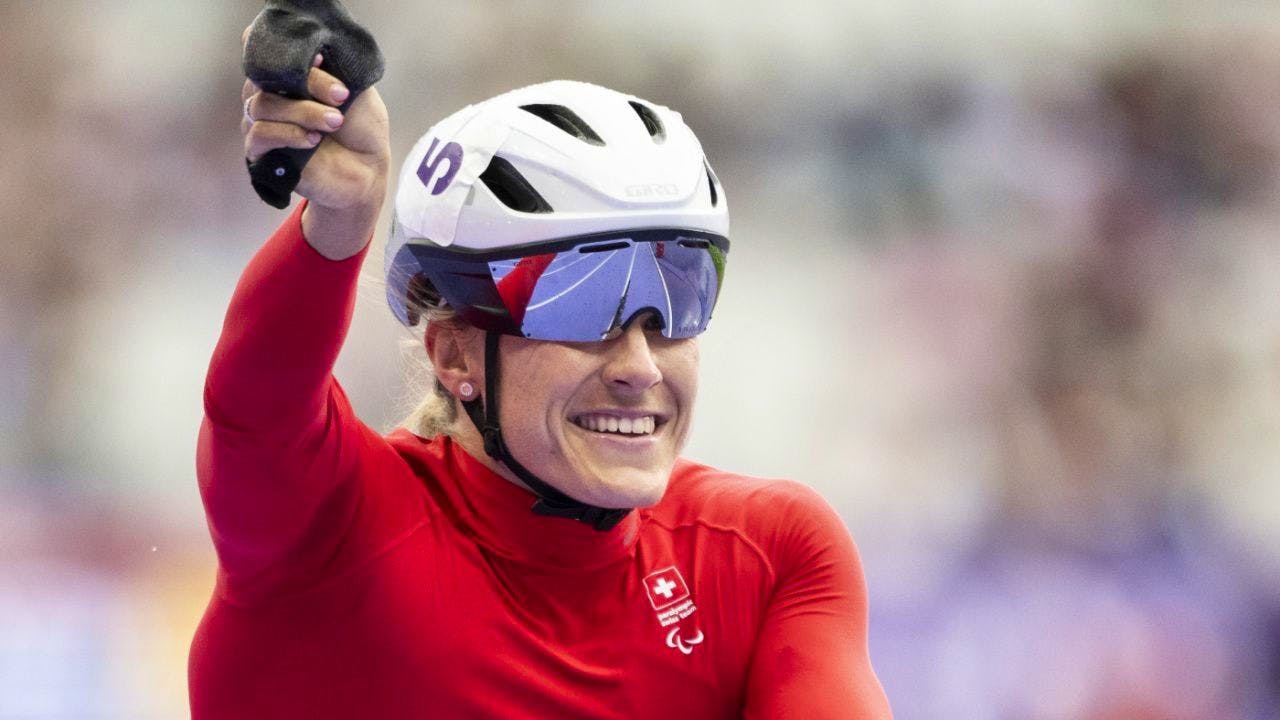
Swiss Paralympic has enjoyed an extremely successful Paralympics in Paris. But the Chef de Mission and the Head of Sport do not believe that Switzerland will have to be measured by the 21 medals in the future.
When Swiss Paralympic announces the objectives for the 17th Paralympic Games in Paris, Head of Mission Peter Läuppi repeatedly emphasizes that the 27-strong delegation has set itself an ambitious target in terms of medals. Läuppi gives 14 as a benchmark.
Now, eleven competition days later, the man from Aargau is sitting in front of the imposing Hôtel des Invalides and taking stock. Only a short time before, Marcel Hug and Catherine Debrunner had ensured a double golden finish with their victories in the marathon and brought Swiss Paralympic medals 20 and 21. "You can't expect a performance like this," says Läuppi. "I am very proud of the athletes."
The quartet delivered
The delegation increasingly went into a medal frenzy and the athletes repeatedly pushed each other to top performances. Läuppi emphasized the breadth of the team, meaning that the Swiss delegation not only won medals in its nominally strongest disciplines of athletics (13) and cycling (5), but also in swimming, where Leo McCrea won gold in the 100 m breaststroke and Nora Meister silver in the 400 m crawl. And of course in badminton, where Ilaria Renggli brought Switzerland a historic medal premiere.
"We knew that we had a lot of potential in this delegation," says Läuppi. "This breadth is an important reason why we were able to significantly exceed our target." Nevertheless, the athletics team was responsible for the lion's share of the medals. Marcel Hug, Catherine Debrunner, Manuela Schär and Elena Kratter had been the main medal hopes in the run-up to the event. And the quartet did not disappoint. On the contrary.
The progress of the competition
The 13 athletics medals were all won by the four. One athlete, Catherine Debrunner, outshone the others. The 29-year-old reached the final in Paris six times and won a medal six times. She won gold five times and silver once in the 100m. These are facts that also amaze Andreas Heiniger.
"What Catherine has delivered is simply sensational," says the Head of Sport for the Swiss Paralympic delegation, who has been closely following the athletics team in Paris throughout the event. He also uses superlatives for Marcel Hug, who won bronze in the 800 m after two silver medals in the 5000 m and 1500 m before crowning his sixth Paralympics with marathon gold, saying: "Marcel's performance cannot be overestimated." The competition, especially from China, has made enormous progress in terms of equipment and professionalism in recent years. Even if some had assumed that Hug would win four gold medals, as he did in Tokyo, that could not be the expectation. "Those days are over," says Heiniger. "The other nations are making progress too quickly."
In the case of Manuela Schär, the Head of Sport is particularly pleased that the Lucerne native can say goodbye to her last track race with a gold medal (800 m) and a silver medal (400 m). Especially in view of the fact that the remaining races did not go to the 39-year-old's liking and that she even had to put up with a fall in the 1500 m. "It was sensational how she then pulled herself together again for the 400 m." And long jumper Elena Kratter managed to confirm her performance from Tokyo, when she also won bronze. "That makes me really happy for her."
With one or two exceptions, the athletes always managed to deliver their performance, Heiniger notes. Even those who were not rewarded with a medal, but perhaps at least got a diploma.
15th place pleases the boss
It is important to both Head of Delegation Läuppi and Head of Sport Heiniger that, despite the joy of the most successful Paralympics in this millennium, the sporting successes are always put into perspective. "We can't expect things to always be like they are now in Paris," says Läuppi. And Heiniger believes that the athletics team in particular is in an exceptional situation, with exceptional talents competing for medals in various disciplines over many years. But there comes a time for everyone, like Manuela Schär now, when they will no longer compete on the track. Heiniger says: "We have to lower our expectations somewhat. There will tend to be fewer medals in the future."
Something that Peter Läuppi is particularly pleased about is that Switzerland ranks 15th in the medal table with its eight gold and silver medals and five bronze medals. "That's amazing and shows how well our athletes have done in a global comparison."







